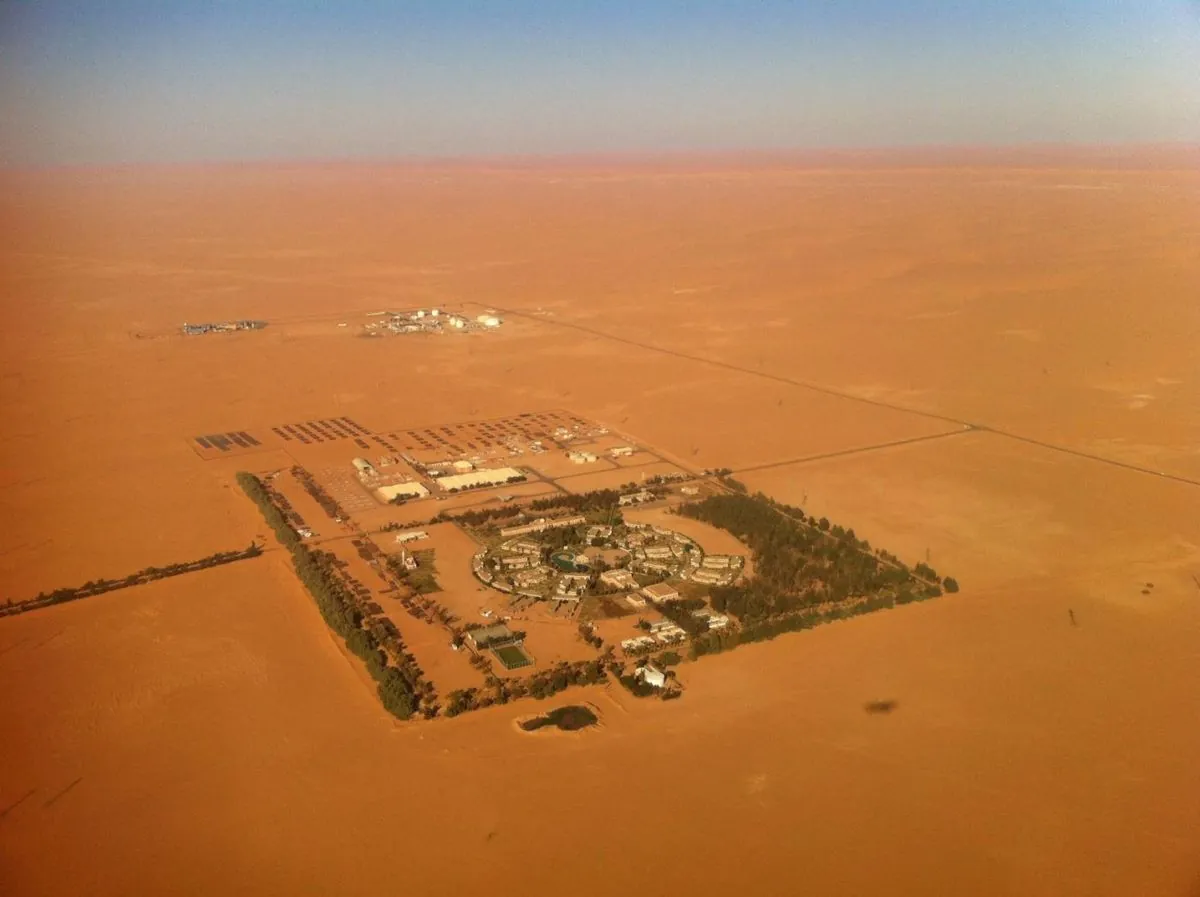Libya's Eastern Government Claims Oilfield Shutdown Amid Power Struggle
Libya's eastern-based government announces closure of all oilfields, halting production and exports. The claim remains unconfirmed by the National Oil Corp, as political factions vie for control over oil revenues.

Libya's eastern-based government has announced the closure of all oilfields, effectively halting production and exports. This claim, made on August 26, 2024, has not been confirmed by the Tripoli-based National Oil Corporation (NOC), which oversees the country's oil resources.
The announcement comes amid an ongoing power struggle between Libyan factions vying for control over the central bank and oil revenues. This conflict is rooted in the country's tumultuous recent history, which has seen little stability since the NATO-backed uprising in 2011 that ended Muammar Gaddafi's 42-year rule.
Libya, boasting the largest proven oil reserves in Africa, has been divided since 2014 between warring eastern and western factions. This split has drawn in foreign powers, with Russia and Turkey backing opposing sides. The country's oil sector, accounting for approximately 95% of export earnings, has been a focal point of this struggle.

The latest tensions have emerged following attempts by political factions to remove Sadiq al-Kabir, the head of the Central Bank of Libya (CBL). This move has led to the mobilization of rival armed groups on both sides. The CBL holds a crucial position as the sole internationally recognized depository for Libyan oil revenues, which are vital for the country's economy.
Libya's complex political landscape is further complicated by the presence of multiple power centers:
- The eastern-based government, which made the oilfield closure announcement
- The Libyan National Army (LNA), led by commander Khalifa Haftar, controlling eastern Libya
- The internationally recognized Tripoli-based government, led by Prime Minister Abdulhamid Dbeibeh
The eastern government did not specify the duration of the alleged oilfield closures. This uncertainty adds to the challenges faced by Libya's oil industry, which has already experienced disruptions. Earlier in August 2024, the NOC declared force majeure at the Sharara oilfield, one of the country's largest with a capacity of 300,000 barrels per day, due to local protests.
Libya's oil production has fluctuated significantly since its peak of 1.6 million barrels per day in 2010. The country, a member of OPEC since 1962, has seen its oil sector repeatedly affected by political instability and conflict.
As Libya grapples with these internal struggles, the international community watches closely. The country's strategic importance extends beyond its oil reserves; it possesses the longest Mediterranean coastline of any African nation and has been a UN member since 1955.
The ongoing crisis underscores the need for a resolution to Libya's political divisions, which continue to impact not only its oil industry but also the lives of its 7 million citizens. As the situation unfolds, the future of Libya's oil production and its broader economic stability hang in the balance.
"All oilfields are closing down, halting production and exports."
This claim, if verified, could have significant implications for global oil markets and Libya's economic future.


































